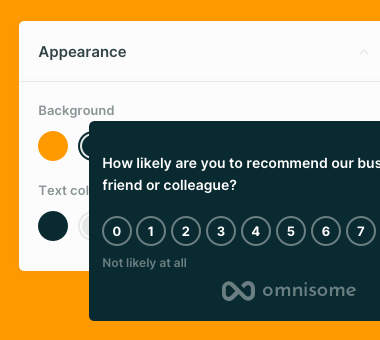Monday, February 27, 2023
8 Mistakes businesses make with their websites
There are 1.13 billion websites in the world with number keeps growing. Every day, a new business website is launched that hopes to attract visitors, sell products, or reach any other business goal.
Still, not all websites are created equal. The Internet is full of “dead” sites that are abandoned by their owners (and potential visitors).
Take a look at your own browsing habits. How many websites do you visit daily and shop with? How many websites do you close right after opening?
Businesses constantly make mistakes with their websites. Some mistakes are easy to fix and some are more costly and damaging. We will look into the most common mistakes that businesses make about their websites so you don't fall into the same pit.
Why do you need a website?
“Your business needs a website” is probably one of the worst pieces of advice anyone can give you. What could be even worst is the reason - “Because everyone else has a website”.
The Internet is full of “business card” websites and we all know where most business cards end their lives.
The first question you need to ask yourself is “Why do I need a website?”.
Having a clear purpose will help you understand where you want to go with your business website. Your website should support your mission, vision, and strategy. It can (and should) be a powerful instrument to achieve your business goals.
Or, it can be something you were convinced to have because everyone else does.
Website is not a one-time deal
Website is not a “launch and that's it” thing - this is how “dead” websites are made and you don't want to own one.
It requires constant work with regular content updates and optimization.
If you want to succeed with your website, SEO and content management should become a part of your business. If you are not able to carry that out by yourself, consider hiring a web agency. Many web agencies offer content management and SEO services as a part of their website maintenance packages.
Build manageable websites
Don't fall into the “I want it all” trap. You don't need all functionality and features in the world to be successful online.
Define MVP (minimum viable product) for your website and start with it. Start with the website you are able to handle. You will always be able to add more functionality and sections later on.
There is no reason to have blogs, news, and case studies all at once if you don't have sufficient resources to work with that content on a daily basis. Your website should look fresh at any time.
Build, Measure, Learn
Build, measure, learn are the key principles of the Lean Startup methodology you should apply when thinking about your website.
Every time you introduce a new section, feature, or content, it is important to understand what you want to achieve and how you will measure your success.
As the data come in, analyze the results and learn from your success or failures. It will help you to move forward with confidence that you are doing the right thing.
Know your target audience
Your visitors are the ones who will use your website - not you or a web agency that you hired to create a website.
Of course, web agencies have the expertise that can help you create a website that your clients will love. This is why hired them in the first place.
Nevertheless, it does not change the fact that you must talk to your site visitors (and clients) about their experience. Know what your clients are thinking and make changes based on their feedback.
A simple customer satisfaction survey can provide you with insights on how to change your website to generate more leads and conversions.
Are you ready to build better products?
Keep your website updated and secure
Website maintenance is one of the most important processes you need to take care of as a website owner.
At the end of the day, it covers the majority of your website life-cycle and can not be underestimated.
The website maintenance service takes care of your website in terms of updates, security, backups, tests, and other key performance indicators. As a result, your website will operate with better performance, be resilient to hacker attacks and show a better SEO score.
Don't be a copycat
Just because it works for someone else does mean it will work for you.
Blind copying of website functionality or design (even worse) won't make your website successful.
Just like your business, your website should have its own identity, branding, funnel, and goal. Plus, if you get caught with a copycat at your hands, it will have a negative impact on your reputation.
Have a plan in place
What is the next thing you want to do about your website? Where do you want your website to be in a year?
These are basic questions you need to know and plan for. Building an action plan on how to develop your business website further is a must - just like a long-term strategy for your business.
In fact, your website development plans should reflect your business's strategic goals in the first place.
Conclusions
There is a lot more about the website than meets the eye.
It is not a one-time deal as many businesses may think. Being successful online requires regular and consistent effort.
From the planning and contribution to maintenance and working with your clients. Your business website is an instrument that requires constant polishing to serve you well in achieving your goals.
Explore more
It’s time to start understanding your customers
Stop playing guesstimates. With Omnisome, you are building a lean feedback loop with your customers joining the game.
